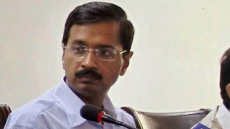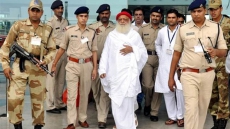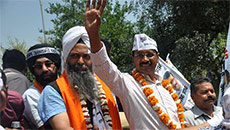Hours after Islamabad expressed its "serious concern" to the UN over the Indian government's proposed Geospatial Information Regulation Bill, New Delhi dismissed the concerns and said "Islamabad has no locus standi on this issue".
Under the draft Geospatial Information Regulation Bill, anyone distributing a map that the Indian government deems to be "wrong" could be liable for a billion-rupee fine and jail time.
Pakistan Foreign Office spokesman Nafees Zakaria said India's "incorrect and legally untenable" official map, in violation of UN Security Council resolutions, displays the Pakistani side of Jammu and Kashmir as part of India.
External Affairs Ministry spokesperson Vikas Swarup said India "firmly rejects" repeated and increasing attempts by Pakistan to impose on the international community matters that it had always been open to address bilaterally with it.
"The proposed bill is an entirely internal legislative matter of India, since the whole of the state of J&K is an integral part of India. Pakistan or any other party has no locus standi in the matter.
"The Government firmly rejects Pakistan's repeated and increasing attempts to impose on the international community matters that India has always been open to address bilaterally with Pakistan," Swarup responded.
Through passage of this Bill, the Indian government would be able to penalise individuals and organisations "who depict Jammu and Kashmir as a disputed territory as per the United Nations Security Council (UNSC) resolutions".

A letter sent to the UN in this regard by Pakistan's permanent representative in New York calls on the world body to uphold the Security Council resolutions, and urges India "to stop acts that are in violation of international law".
Pakistan also urged the international community and the UN to fulfil its commitment to the people of Jammu and Kashmir by holding an independent and impartial plebiscite under the auspices of the UN.
The bill, according to various media reports, states that a licence will be needed to "acquire, disseminate, publish or distribute" maps, which means services like Google Maps and Apple Maps could have to apply for permits.
Last year, the government took the Al Jazeera news channel off air for nearly a week, saying it had repeatedly shown incorrect maps of Kashmir.
In 2011 it ordered The Economist magazine to cover up a map of the disputed borders in Kashmir. The news weekly placed white stickers over a diagram of the borders in 28,000 copies on sale in India. Google has also run into problems with Indian authorities over maps.
In 2014, the national surveying agency filed a complaint against the company for displaying varying maps of India on its different country webpages.






